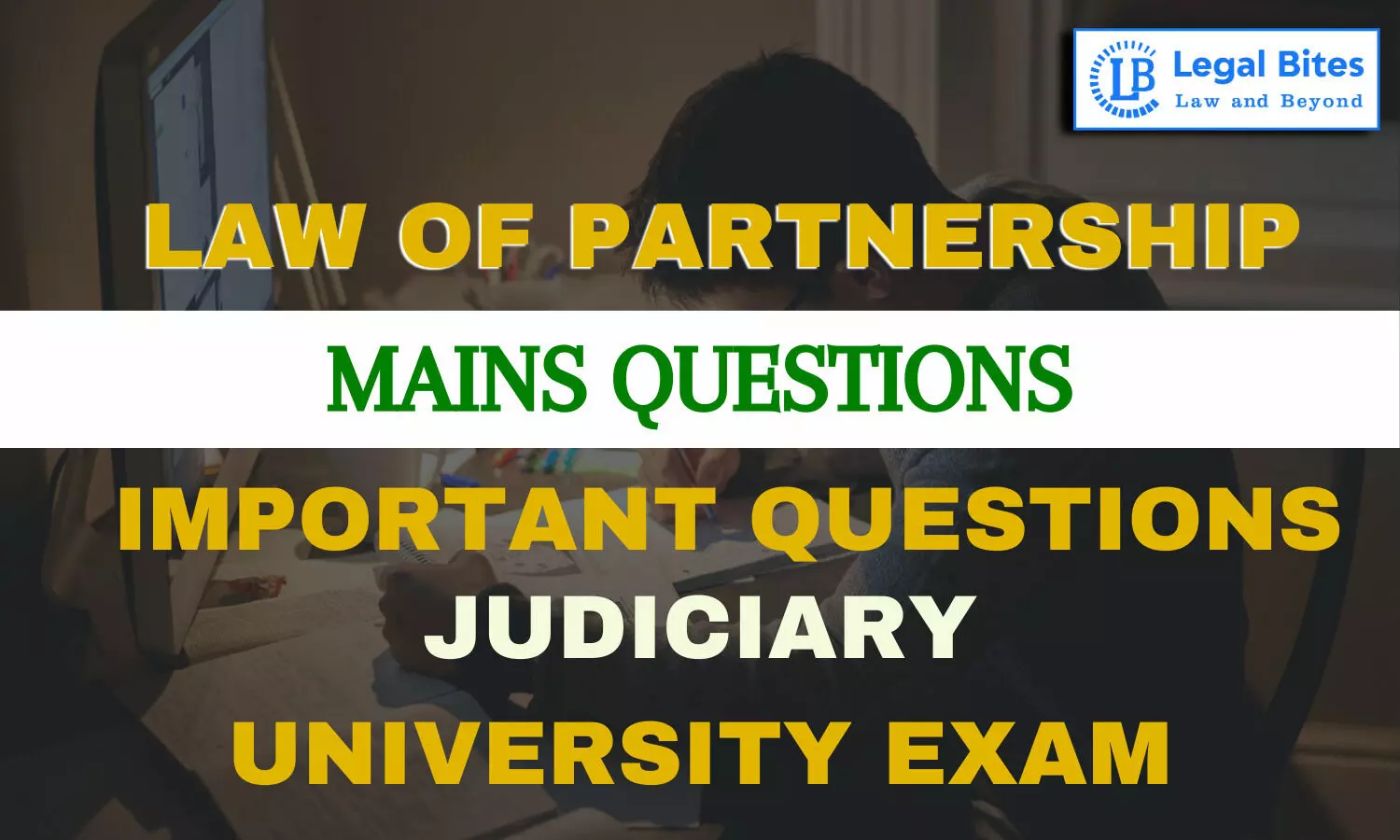Partner embraces the character of both that of a Principal and Agent. Comment, bringing out the scope of implied authority of a partner to bind a firm. One of the partners of a firm bribed the clerk of a rival firm in order to get some confidential information. Are other partners of the firm liable liable for the act of the partner?
Find the answer to the mains question of the Law of Partnership only on Legal Bites.;

Question: Partner embraces the character of both that of a Principal and Agent. Comment, bringing out the scope of implied authority of a partner to bind a firm. One of the partners of a firm bribed the clerk of a rival firm in order to get some confidential information. Are other partners of the firm liable liable for the act of the partner? [BJS 1978]Find the answer to the mains question of the Law of Partnership only on Legal Bites. [Partner embraces the character of both that of a...
Question: Partner embraces the character of both that of a Principal and Agent. Comment, bringing out the scope of implied authority of a partner to bind a firm. One of the partners of a firm bribed the clerk of a rival firm in order to get some confidential information. Are other partners of the firm liable liable for the act of the partner? [BJS 1978]
Find the answer to the mains question of the Law of Partnership only on Legal Bites. [Partner embraces the character of both that of a Principal and Agent. Comment, bringing out the scope of implied authority of a partner to bind a firm. One of the partners of a firm bribed the clerk of a rival firm in order to get some confidential information. Are other partners of the firm liable liable for the act of the partner?]
Answer
Section 19 of the Partnership Act states that every partner is an agent of the firm for the purpose of carrying on the business of the partnership. In the ordinary course of business, this means that each partner has the implied authority to bind the firm and the other partners by his actions and representations.
The scope of implied authority under Section 19 can be determined by the following factors:
Nature of the Partnership Business: Implied authority extends to actions that are necessary or usual in the conduct of the partnership's business. This includes acts such as entering into contracts, buying or selling goods, borrowing money, and other activities that are commonly associated with the business.
Prior Course of Dealing: The authority of a partner can also be inferred from the past conduct and practices of the partnership. If certain actions have been consistently performed by a partner in the past with the knowledge and consent of the other partners, it may be deemed within the scope of his implied authority.
Custom or Usage: Implied authority can also be determined by the customs and usages prevailing in the particular trade or business in which the partnership operates. These customs or usages may extend or restrict the authority of a partner in specific circumstances.
Regarding the liability of other partners for the act of a partner, Section 19 does not explicitly address this aspect. However, Section 25 of the Partnership Act states that every partner is liable jointly with all the other partners for all debts and obligations of the firm incurred while he is a partner. This means that unless the act of the partner falls outside the scope of his implied authority or is in violation of the partnership agreement, all partners will be jointly and severally liable for the consequences of that act.
In the given scenario, where one of the partners bribed the clerk of a rival firm, the liability of the other partners would depend on whether this act falls within the implied authority of a partner in the ordinary course of business. If it is determined that the act was within the partner's implied authority, the other partners would be jointly and severally liable for the consequences of the bribery.
However, suppose the act of bribery is considered to be outside the scope of the partner's implied authority or is in violation of the partnership agreement. In that case, the other partners may argue that they should not be held liable for the unauthorized action.





